Introduction and Executive Summary
Corporate reputation is a vital enterprise concept that ensures how consumers perceive the company’s image. The importance of corporate reputation is seen as the power of an organized relationship between an enterprise and a consumer, with consumers being both current customers of the company and potential customers who may join the audience (Esenyel, 2020). Businesses invest in corporate reputation to acquire consumer loyalty and thus increase company capital. Global business history knows enough examples where the destruction of corporate reputation has led to an organizational crisis — the news of murders and crimes that have damaged AirBnB is quite telling (Carville, 2021). At the same time, there are examples of socially responsible and environmentally conscious companies fighting for consumer rights and creating a comfortable environment. This project evaluates the importance of corporate reputation regarding the problems that can harm this concept. Global Meta (www.facebook.com) was chosen to concretize the study. It is recognized that the current privacy policy may have had devastating potential on Facebook’s corporate reputation. In this regard, the particular question is to evaluate the effectiveness of the company’s organizational strategies to improve public relations, including through a press release.
In April 2021, the social network Facebook again found itself at the center of public debate. The company’s claims against the company were the large-scale leak of user data of more than half a billion customers (Çoban, 2021). It is reported that the stolen data included quite sensitive details: usernames and addresses, dates of birth, contact information, biographical information, and account identifiers — as a result, attackers could seamlessly link social media profiles to real people, which created a range of ethical, criminal, and personal problems. This leak problem significantly impacted Facebook’s corporate reputation and undermined user confidence in the network. The agenda was exacerbated by the company’s reluctance to notify users whose data had been stolen — this may seem like a controversial decision, not aimed at customers’ interests (Bowman, 2021). Thus, there is a severe problem with Facebook’s corporate reputation for which a solution must be found.
- The methodological basis for this study is built on a literature search and research of academic and public materials highlighting the problem.
- Conclusions: Facebook had a data breach in 2021, and action needs to be taken to address such problems in the future
- Consequences: data leaks pose a threat to public safety and affect corporate reputation. Adopting new technology and good community outreach can restore user and advertiser trust
- Structure: this material examines the case of Facebook data breaches in 2021 and suggests PR strategies to improve corporate reputation.
Background Information on Facebook
Facebook is the largest social network, presenting users with the ability to communicate, interact with each other, read news, and watch videos, and publish posts (Marino, 2021). The company’s USP defines Facebook as a mighty and technological company, regularly working on its capabilities to allow users to interact with each other almost seamlessly, even across the globe. According to SRD (2022), the number of active users of the platform in the first quarter of 2022 was 2.9 billion, a number trending upward for the past fourteen years (Figure 1). People worldwide actively use Facebook, with the most significant number of users in India, the USA, Indonesia, Brazil, the Philippines, and Canada (WPR, 2022). The social network was launched in February 2004 by Mark Zuckerberg, and Zuckerberg has remained CEO ever since. On October 28, 2021, Facebook, Inc. rebranded, resulting in the social network being owned by parent company Meta, Inc. (Hall, 2022). As of the end of May 2022, Facebook has a total capitalization of $547.87 Billion, with a per-share value of $191.63 (Global Ranking, 2022). The brand values are based on a focus on impact, rapid growth, mutual respect, innovation, social value creation, and incredible experiences (Meta, 2022). Thus, Facebook positions itself as the largest modern social network and one of the most expensive companies, attracting the attention of billions of users each month.
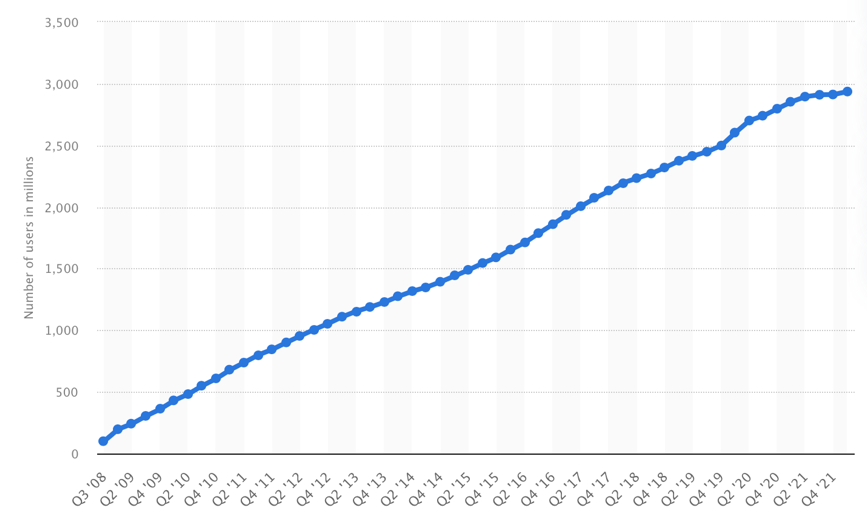
Analysis of the Current Agenda
April 2021 was marked for Facebook (www.facebook.com) by a large-scale data breach that compromised the sensitive information of 533 million users. The stolen data reportedly belonged to users from 106 countries, with most records belonging to U.S. customers (Bowman, 2021). The company suffered severe reputational damage and became the focus of claims from both ordinary users and the media (Dutt et al., 2022). As a result, in October 2021, the Irish Data Protection Commission forced Facebook to pay a fine of 36 million euros (Heiligenstein, 2022). Other reports report a fine of up to 4% of the company’s annual turnover, which could amount to $86 billion (Holmes, 2021). Most importantly, however, the company has significantly lost the trust of ordinary users.
In late 2021, The Washington Post conducted an online poll among Americans to examine trends in trust in social platforms. The survey found that 72% of users did not trust or trust Facebook very much in handling personal data (Kelly and Guskin, 2021). Users have become more careful about their published information and do not trust the social network unconditionally.
SWOT and PESTLE
Figure 2 reports the SWOT analysis results for the current agenda related to data leakage. Even in this situation, it is possible to identify benefits, although their quantity and quality are weaker than the potential risks to corporate reputation. At the same time, Figure 3 shows the results of the PESTLE analysis for the large-scale data leakage situation: the economic consequences of this event prevail, although detrimental factors in all directions are detected.
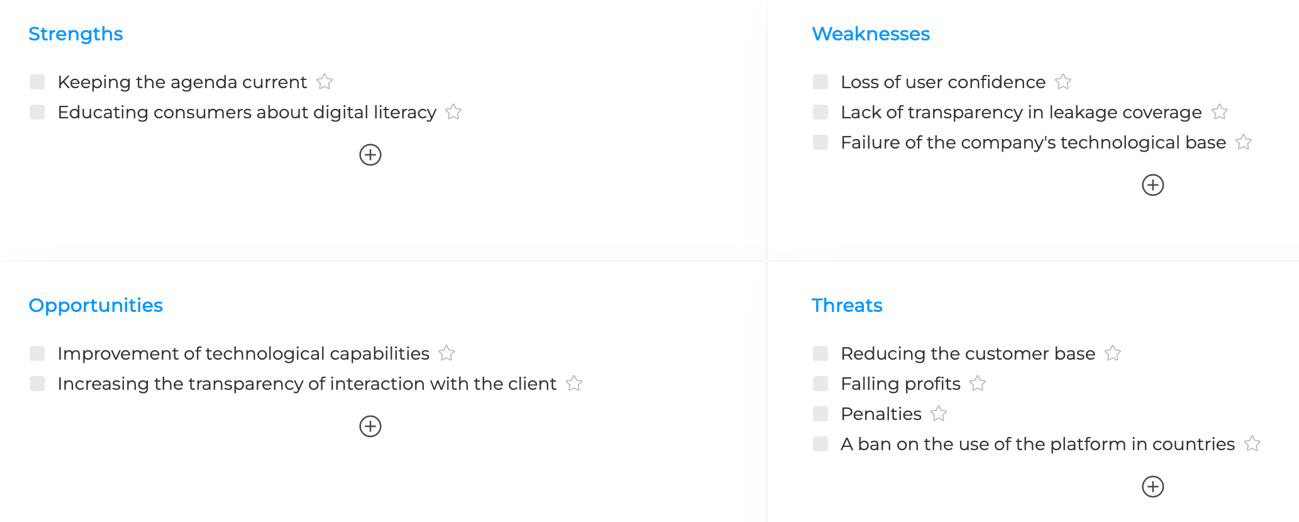
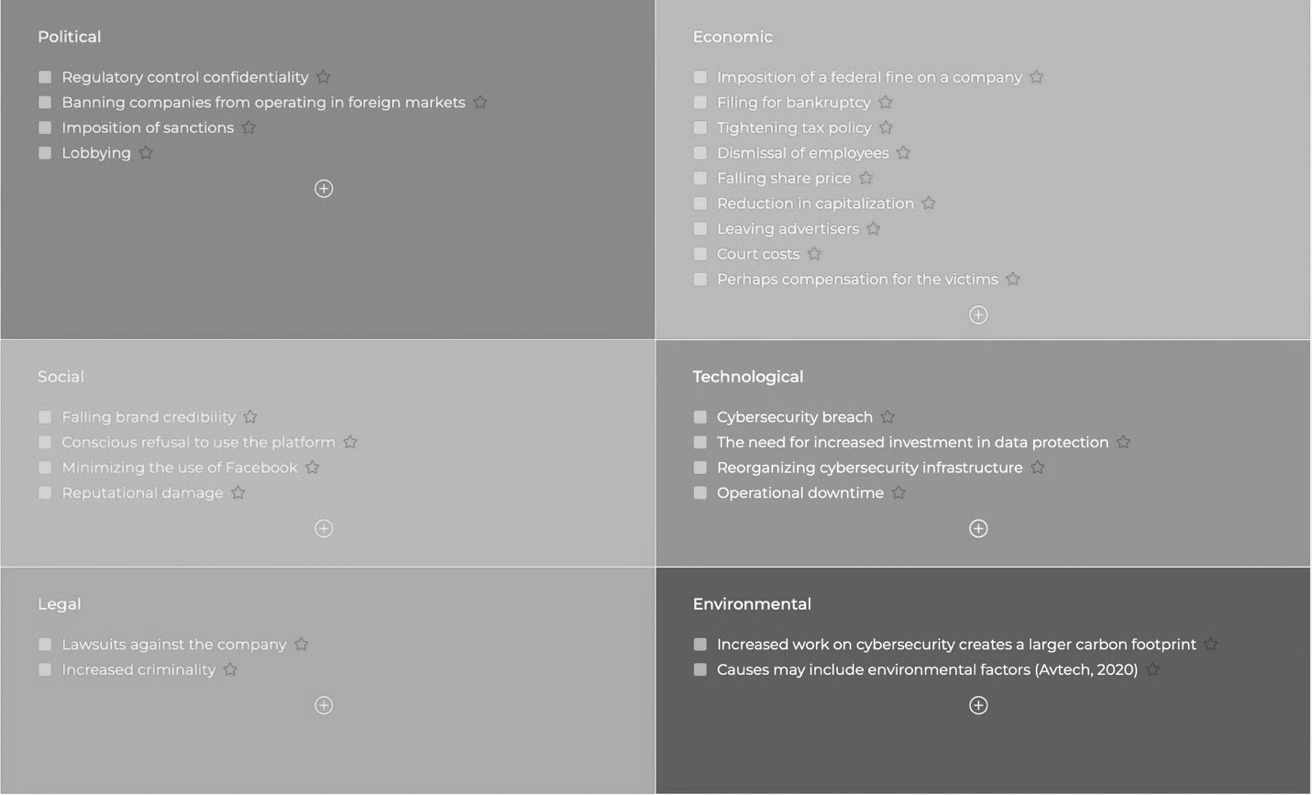
Competitive Analysis
Although a powerful communication platform for users, Facebook is not the only popular social network. Table 1 below shows the results of Facebook’s competitive analysis, considering the current agenda related to data leakage. Facebook and Twitter are the closest in focus because they provide broadly similar capabilities, and as should be noted, the companies have similar weaknesses and vulnerabilities related to data breaches. LinkedIn was the least affected by the leaks, but the platform’s total audience is the smallest. Thus, for competitors, there is a problem related to the social platform’s malfunctioning and propensity for data leaks — Facebook can make up for these problems with proper investment in improving user loyalty and interface development and increased work on the platform’s cybersecurity.
Revenue Generation Model
At Facebook, the revenue generation model is based on advertising integrations included in the news feed, video views, contextual advertising, and commissions from advertiser revenue. Thus, Facebook’s primary commercial audience is businesses and brands that advertise on all of the company’s Meta platforms, including Facebook and Instagram (Franek, 2021). The company receives no money from ordinary users but is actively developing ad-blocking and targeting technologies to increase profits with their interaction with ads.
Stakeholders
The company’s global sophistication defines the diversity of stakeholders involved in Facebook’s operations and affected by data breaches. In addition to senior executives, including the CEO and board of directors, the company’s employees directly involved in ensuring the platform’s cybersecurity have also suffered reputational damage. Against the background of the compromised data, Meta showed a negative trend in share price (Fig. 4), which also affected the company’s securities holders. On the one hand, competitors saw an advantage in such a situation, but on the other hand, understood that hackers would not focus only on Facebook. The data leak also affected government agencies interested in national security.
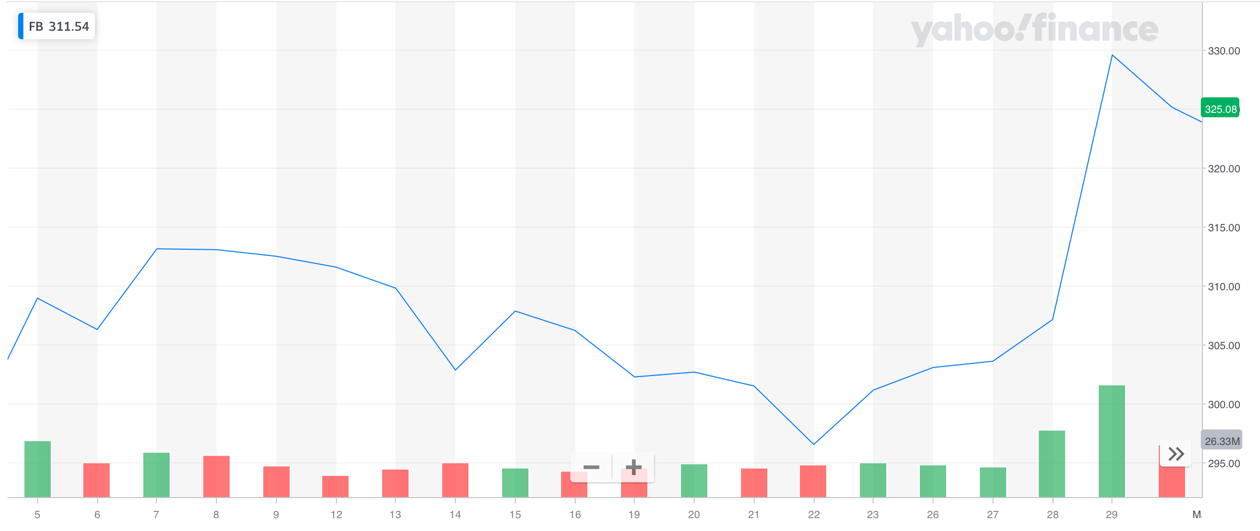
Market Analysis
Facebook’s target audience is adults between the ages of 35 and 44, regardless of gender. There are differences for younger audiences: more women between the ages of 16 and 24 have less interest in Facebook than men (Beveridge, 2022). Notably, 56.6 percent of the advertising audience on the site is represented by men, which means that a slightly higher proportion of advertising integrations are directed at them. Specifically, men between the ages of 25 and 34 are the largest advertising cohort in the company, while the youngest and oldest users are the smallest (Figure 5). As of 2019, the global social media market size was 192.95 billion and is expected to grow nearly fivefold by 2026 (KSI, 2021). With the spread of the pandemic and the compulsion to stay at home, social media has become noticeably more popular, which translates into increased profits for companies and the market as a whole (Mason, Narcum, and Mason, 2021). Notably, by May 2022, Facebook held 75.49% of the industry market, a near-flawless lead (GlobalStats, 2022). Thus, the market is dynamic and rapidly evolving, providing opportunities for active growth. The impact on the market can be realized by developing a culture of transparency and accountability in which users can trust Facebook after the leak in 2021. On the social platform, customers are looking for limitless possibilities for communication and leisure activities and expect their data to be completely secure — in return, they are willing to show loyalty and generate revenue for the brand. Thus, using more accurate targeting in synthesis with improving the user experience online will create favorable opportunities for the platform’s development.
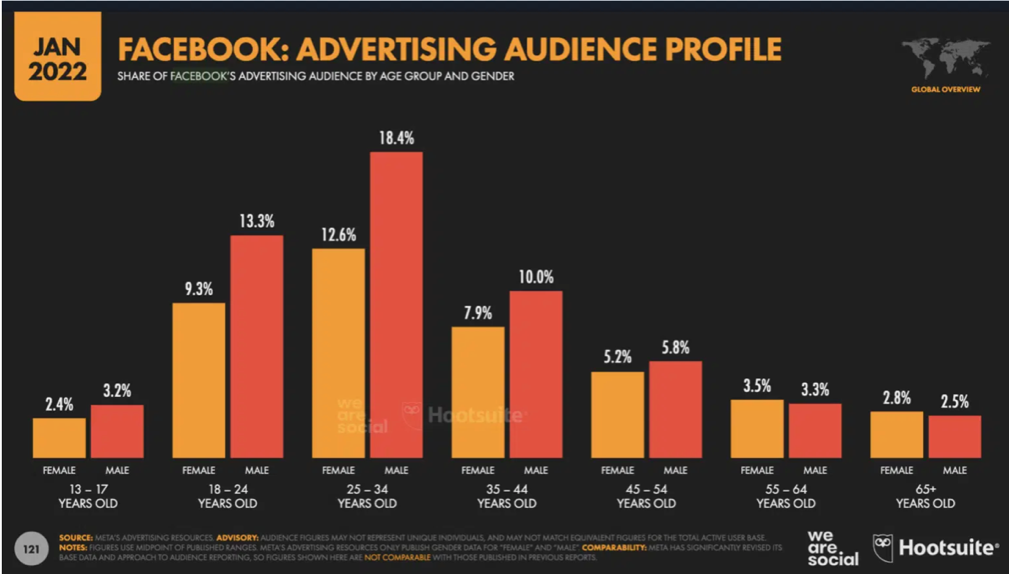
Primary Research
A survey approach was used to obtain the primary data based on a questionnaire survey of participants. The survey intended to measure the levels of awareness, satisfaction, and concern of the sample in the context of the Facebook data dump. Specifically, the questionnaire was presented with ten questions, two of which assessed respondent demographic characteristics (age and gender), as shown in Survey Questionnaire. The created survey, which was posted on the Google Forms platform in an online form, was distributed among acquaintances and relatives of the author of the study; the final sample size was ten people.
Initially, it should be clarified that in terms of demographics, 40% of respondents (n = 4) were male, and 60% (n = 6) were female. In the context of the age distribution, the mean age of the sample was 25.8 years (SD = 6.81). The youngest participant was 18 years old, and the oldest participant was 41 years old. Notably, of all those surveyed, only 20% (n = 2) did not fill out their Facebook profile with current background information, with 90% (n = 9) declaring that the social network contained their sensitive data, including phone numbers, credit card numbers, and personal addresses.
The phenomenon of the massive April 2021 data leak did not affect everyone, as two out of ten participants (20%, n = 2) said they had not heard of any leak. Individuals’ emotional reactions to the news of the data leak varied. Specifically, only 30% of respondents (n = 3) said they were stressed by the news, with anxiety levels rising to 50% (n = 5). In other words, people were more likely to feel anxiety than stress when they learned of a potential data leak.
An intriguing result concerns the increase in fraud after the leak was published. Supposedly, getting phone numbers and email addresses into the public domain intensified the problem associated with online fraud. All participants unanimously responded (100%, n = 10) that they noticed an increase in such frauds since April 2021. At the same time, all 100% of the sample said they did not know of any instances where Facebook had apologized to them personally or to someone they knew. Finally, it was found that amid the news of a large-scale data breach, approximately 1 in 2 participants (60%, n = 6) thought that Facebook should be punished for irresponsibility, while 40% (n = 4) disagreed with this thesis. Thus, the primary analysis shows different findings regarding awareness, emotional responses, and intentions among young respondents who use social networking sites.
Executive Summary
The current section of the study focuses on the reactive handling of the problem of Facebook data leaks in terms of marketing communications and the reputational credibility of the social platform. Precisely, the section consists of four large subsections, highlighting substantively the goals and objectives of marketing planning, suggestions for strategies to improve the reputation status of the social network, a timeline for organizational milestones, and directions for future work. Specific changes and modifications to be implemented at Facebook to increase customer trust and improve the current reputation damaged by the massive data breach are reported. In addition, this section also includes a press release designed to address the lack of feedback from Facebook management and raise awareness among users.
Defining Targets
Marketing Goals for the Plan
- Building a culture of transparency, measurable through a monthly consumer perception survey, publishing an apology to users whose data has been stolen, and broadcasting all the strategies used to improve cybersecurity. Because most of the world’s audience uses Facebook, strengthening a culture of openness and transparency creates an opportunity to increase customer loyalty and trust and attract advertisers, especially in the face of intensifying cyberattacks. The goal is scheduled to be realized in 2022, during which significant efforts are to be made.
- Developing brand awareness, measured through a quarterly sociological recognition survey, realized through brand messaging and advertising on third-party platforms and investing in social responsibility. Facebook’s audience can grow as the working-age population grows, so efforts must be made to inform. This goal will be realized during 2022-2023, which is enough time to research and implement strategies.
- Increased company profits, measurable through quarterly financial metrics, implemented through strategies to increase the platform’s audience and attract new advertisers. Facebook is already an industry leader, so the company should seize more opportunities for financial growth. The goal is planned for 2022-2025, which will allow for collecting enough data on the effectiveness of the strategies and adjusting them in time.
- Development of a socially responsible brand image, measurable through several specific strategies and sociological perception surveys within each quarter, implemented through efforts to support socially relevant issues. Today’s agenda dictates that companies must be socially responsible and tolerant, so this goal, implemented over the next two years, will create the desired image in customers’ minds.
- Increased cyber security of the platform, measured by the number of cyber-attacks and repelled threats within each month, implemented through investment in the development of the relevant department. The relevance of the goal is borne out by both experiences with large-scale data breaches and the increasing number of cyberattacks. The goal is urgent, so it is scheduled for 2022.
Professional Services
To support the www.facebook.com platform, the services of professional web designers with knowledge of user perception of interface details and adapting the website for people with disabilities are used. This service increases customer loyalty and improves the experience of interacting with the platform (Hossam, Mohamed Hussein, and Rady, 2022). The services of sociological survey agencies that conduct regular measurements of consumer perceptions of brand image are also used. This goal creates opportunities for quantitative performance measurement and forms the foundation for platform development. Finally, third-party audit services conduct compliance and operational efficiency checks during site development. Services are used to increase process independence and identify weaknesses.
In-House Tasks
- Support the marketing development of the platform through the implementation of initiatives;
- Facilitating quantitative measurements to gather relevant data;
- Collaborating with stakeholders to jointly adjust the development vector;
- Conducting competitive analysis, SWOT, PESTLE;
Strategies and Tactics
Site Design
The platform’s functionality provides leeway in selecting backgrounds and customizing key sections and appears loose and uncluttered (Figure 6). However, the web accessibility score is 55 because the platform uses insufficient color contrasts, the inability to scale content for visually dysfunctional people, and lack of linked labels for automatic screen reading (Accessibility Checker, 2022). Most of these problems are solved by software code: Figure 7 shows an updated Web site version that retains the overall structure but provides more features. Adding elements enhances the user experience, which allows the values of a socially responsible and open company to develop.
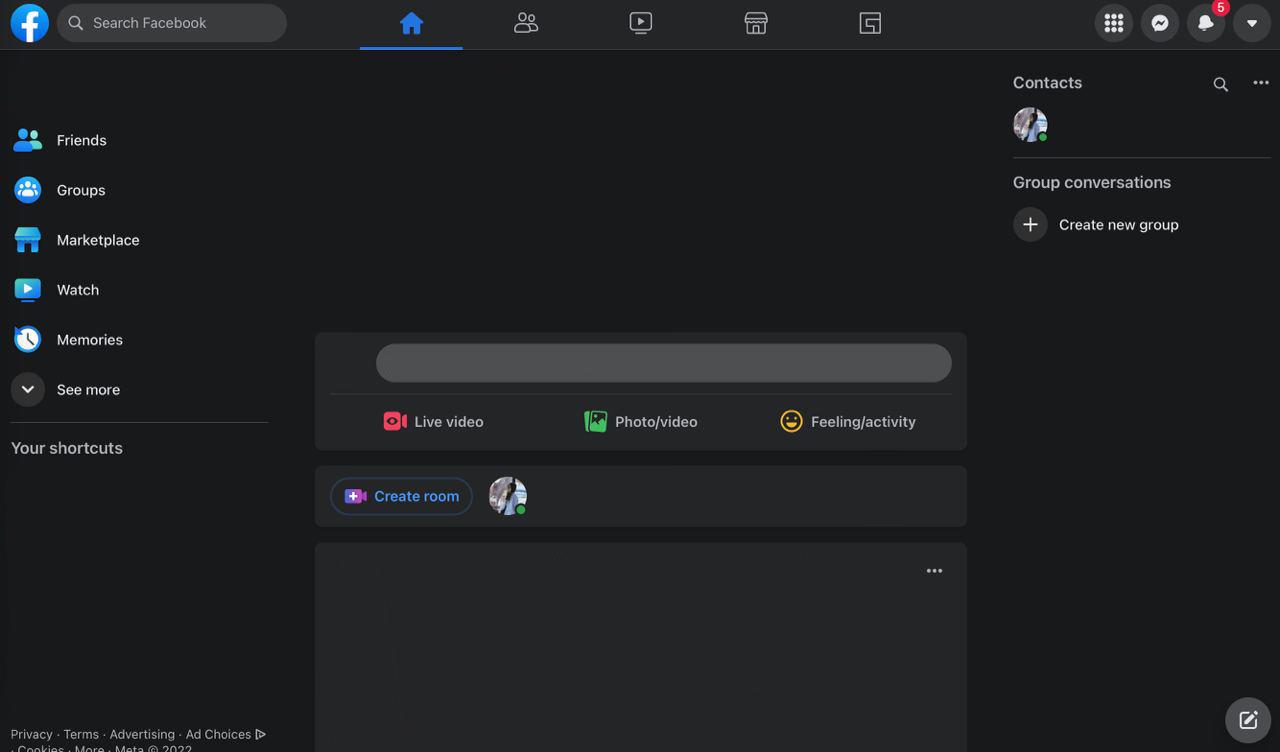
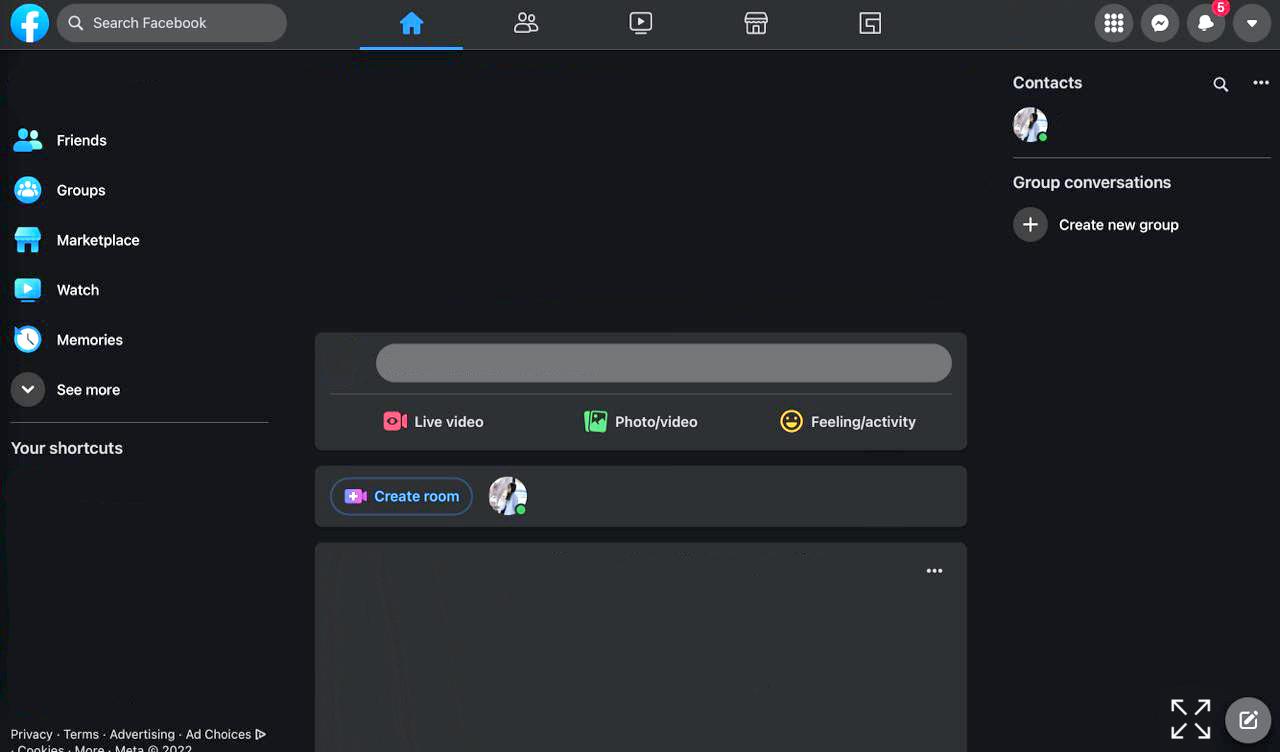
Attracting Clients’ Attention
It is suggested to use Google, Bing, Yahoo, Yandex, and Baidu as they are the largest search engines (Harnish, 2021). In addition, posting ads and social videos on YouTube, TikTok, and Instagram increases organic traffic and potentially increases the brand’s target audience. The metrics of visitor count, bounce rate, session duration, top traffic source, device source, and exit pages are used to evaluate the effectiveness of customer engagement on third-party platforms.
Attracting Interest
The target market is based on users who are inclined to use digital platforms and prove to be paying consumers. Communications via email, native ads on third-party services (Figure 8), and in-app push-up notifications will be used to attract interest. This variety will increase consumer engagement and create high visibility, satisfying the PR goal.
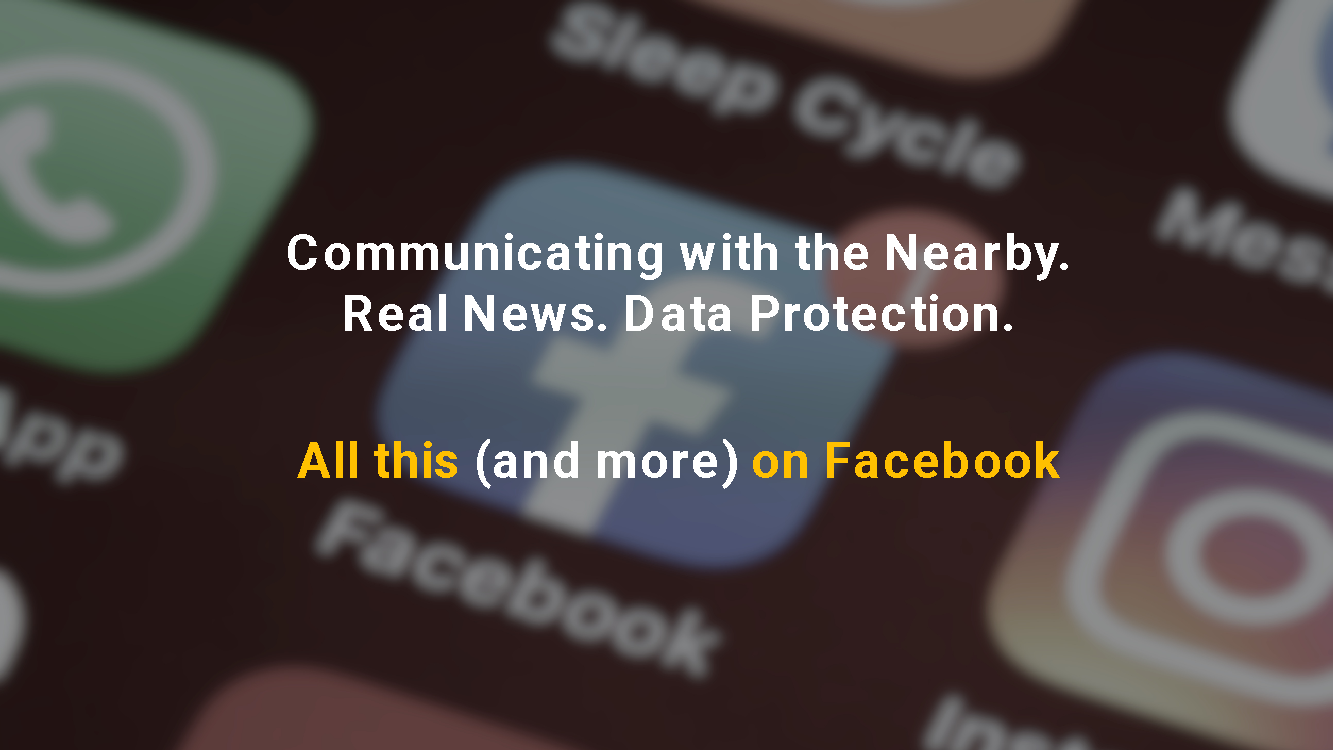
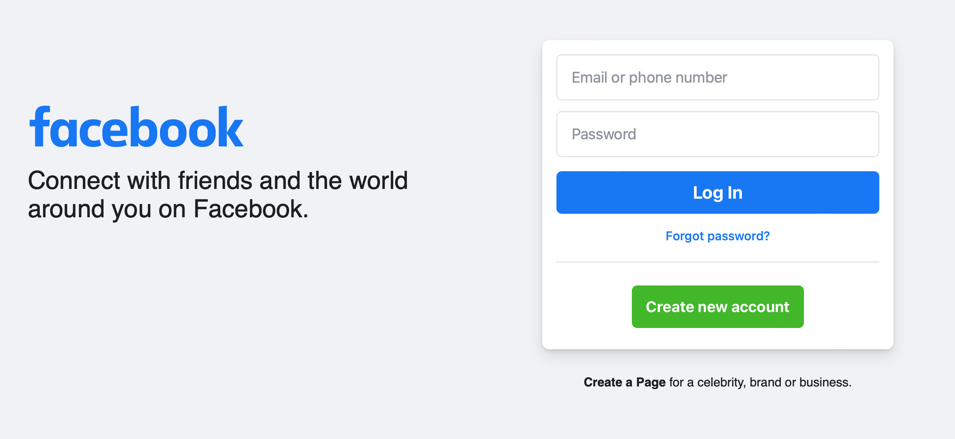
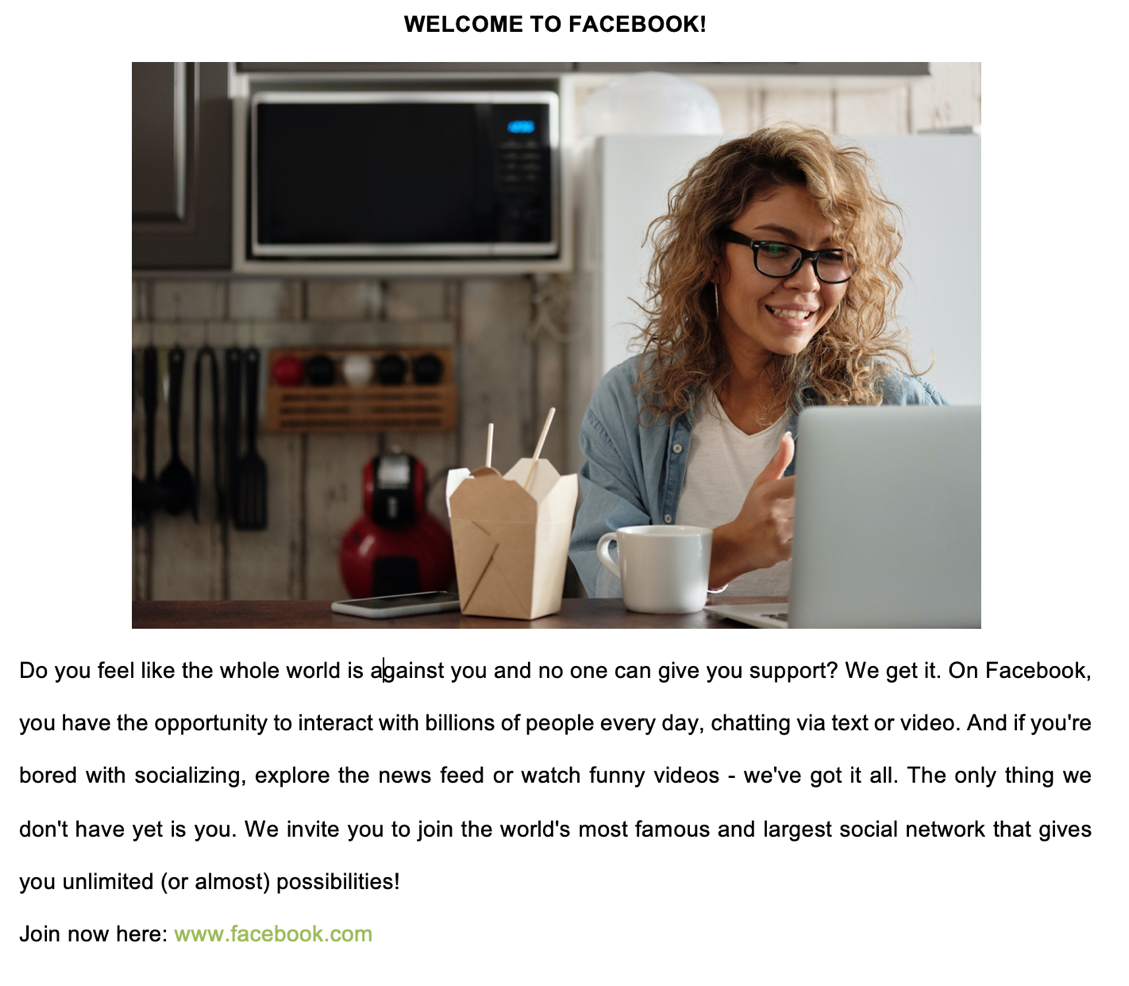
List of Companies-Partners
As part of the PR strategy, it is proposed to cooperate with the following companies:
- Google (advertising placement);
- Baidu (advertising placement);
- Yandex (advertising placement);
- Yahoo (advertising placement);
- PwC Digital Services (statistical research);
- CyberArk (cybersecurity issues);
- WPP (advertising agency).
Revenue Generation
The following revenue generation strategies will be used to multiply profits:
- Advertising revenue;
- Generation of traffic from third-party platforms;
- Increasing the number of advertisements through more loyal terms;
- Marketing Communications.
Customer Service Plan
Customer service for any questions is implemented through a 24/7 help desk offering help in different languages. Facebook offers contact through a feedback form, a hotline phone number, and a personal visit to the customer service office for more formal inquiries. The essence of this strategy is to increase opportunities to interact with customers, provide maximum communication channels, and consider the interests of different groups. Using sociological surveys and focus groups will assess preferred ways to improve the customer service experience.
Timeline for PR Strategies

Future
The use of machine learning and artificial intelligence mechanisms is recommended to increase targeting. This will optimize production resources and create a more personalized news output. In addition, it is recommended to install an automatic filter of published ads that prevents banned, publicly dangerous banners and links from passing through. The company should use advanced software based on machine learning to prevent bugs and detect vulnerabilities before attacking them to improve cybersecurity. Over the next few years, the following options are suggested:
- Improve website design — this improves accessibility for people with disabilities;
- Implement innovative technologies to address targeted advertising and cybersecurity — this will reinforce the company’s image as loyal and secure;
- Implement socially responsible events — this will create an image of the brand as environmentally conscious and friendly.
Press Release
For immediate release.
We’re Sorry About the Data Leak. And We Developed a Plan.
Facebook, 06/03/2022
records@FB.com
In April 2021; Facebook experienced its largest-ever user data breach — more than 530 million records were stolen. We’ll tell you what to do about it.
As a result of flawed internal cybersecurity systems and increasing attacker capabilities, user data was stolen. This included email addresses, phone numbers, and usernames. The data was published on a free hacker forum, where anyone could access it.
This tragedy increased the likelihood of fraud-related threats. Attackers can use compromised information to make false claims, link it to a user’s real identity, and commit crimes. Many users may associate this with the company’s lack of concern for customer safety.
“Yes, we’re a business, and we make a profit, but the idea that we do so at the expense of people’s safety or wellbeing misunderstands where our commercial interests lie” — Joe Osborne, a Facebook spokesperson.
At Facebook, we are highly concerned about this situation, as it runs counter to the company’s values and poses a threat to public safety. We take quick action to control the problem and communicate with those on the compromised list. Our specific actions include implementing artificial intelligence technologies to enhance cybersecurity, training employees, and exploring new hacking methods for operational prevention.
If you are concerned about the situation and would like to contact us, you can call 650-543-4800 or email records@FB.com.
Notes for Editors: Facebook is the largest social network, serving more than 2.9 billion monthly users. The company is committed to creating safe opportunities for users to communicate and have a fun time and implements the latest technology to improve the customer experience.
Reference List
Accessibility Checker (2022) Audit results of facebook.
Avtech (2020) Cyber security, data loss, and environment monitoring.
Beveridge, C. (2022). 19 Facebook demographics to inform your strategy in 2022.
Bowman, E. (2021) After data breach exposes 530 million, Facebook says it will not notify users.
Brandom, R. (2021) Ten years of breaches in one image.
Carville, O. (2020) Airbnb is spending millions of dollars to make nightmares go away.
Çoban, Ö. (2021) ‘An exploratory analysis of leaked Facebook data: a case of Turkish users’, International Journal of Information Security Science, 10(4), pp. 119-137.
Cybernews (2021) Scraped data of 500 million LinkedIn users being sold online, 2 million records leaked as proof.
Doyle, B. (2022) Snapchat statistics.
Dutt, D., et al. (2022) ‘Need for cyber security tools and knowledge’, International Journal of Research in Engineering, Science and Management, 5(4), pp. 203-208.
Esenyel, V. (2020) ‘Corporate reputation as a strategic management tool: through the lens of employees’, International Journal of Management and Sustainability, 9(1), pp. 24-42.
Franek, K. (2021) How Facebook makes money: business model explained.
Gajic, A. (2021) LinkedIn statistics.
Global Ranking (2022) Meta (Facebook).
GlobalStats (2022) Social media stats worldwide.
Hall, M. (2022) Facebook – social network.
Harnish, B. (2021) Google webmaster guidelines: everything you need to know & understand.
Heiligenstein, M. X. (2022) Facebook data breaches: full timeline through 2022.
Holmes, A. (2021) Facebook is under investigation in the EU for its massive leak of 533 million people’s data — and it could face a fine in the billions.
Hossam, K., Mohamed Hussein, M.M. and Rady, A. (2022) ‘Impact of web accessibility for customers with disabilities on their loyalty in Egyptian hotels’, Minia Journal of Tourism and Hospitality Research MYTHR, 13(1), pp. 162-182.
Kelly, H., and Guskin, G. (2021) Americans widely distrust Facebook, TikTok and Instagram with their data, poll finds.
KSI (2021) Social networking platforms market — forecasts from 2021 to 2026. New York: Research and Markets.
Marino, C., et al. (2018) ‘A comprehensive meta-analysis on problematic Facebook use’, Computers in Human Behavior, 83, pp. 262-277.
Mason, A.N., Narcum, J. and Mason, K. (2021) ‘Social media marketing gains importance after Covid-19’, Cogent Business & Management, 8(1), pp. 1-17.
Meta (2022) Our six core values.
Reed, C. (2021a) Snapchat data breaches: full timeline through 2021.
Reed, C. (2021b) Twitter data breaches: full timeline through 2021.
SelfKey (2022) Facebook’s data breaches – a timeline.
SRD (2019) Twitter: number of monthly active users 2010-2019.
SRD (2022) Number of monthly active Facebook users worldwide as of 1st quarter 2022.
WPR (2022) Facebook users by country 2022.
Yahoo Finance (2022) Meta Platforms, Inc. (FB).
Survey Questionnaire
- Gender.
- Age.
- Do you fill your Facebook profile with information? (Yes/No)
- Does Facebook have your sensitive data, including phone numbers, addresses, and credit card numbers? (Yes/No)
- Are you aware of the fact that Facebook data was leaked in 2021? (Yes/No)
- Do you feel stressed when you find out that data (including possibly yours) has been leaked? (Yes/No)
- Were you dismayed when you found out that the data (including possibly yours) had been leaked? (Yes/No)
- Have you noticed an increase in fraudulent activity since April 2021? (Yes/No)
- Has Facebook apologized to you or someone you know who got caught up in this situation? (Yes/No)
- Do you think Facebook should be punished? (Yes/No)